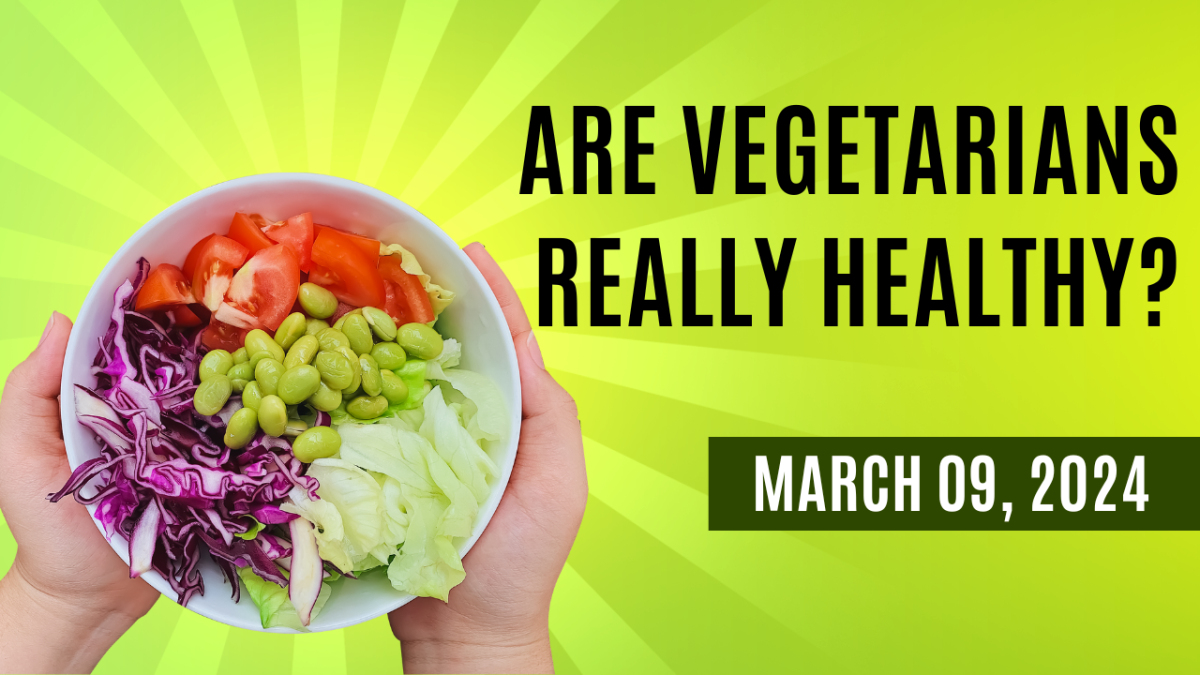
Some of the healthiest people on the planet are believed to be vegetarians. Yet almost too frequently we hear of them getting sick and dying from illnesses that non-vegetarians are dying from. Is this so or is the dietary lifestyle more magnified when they are ill or die? So, what makes a healthy vegetarian? Is it just the foods they eat or is it more?
Many other aspects of a person’s life may increase their risk of dying that we don’t immediately think of that affects their diet and overall health: how they handle stress, how active they are, what they put on their skin (types of lotions, deodorants/antiperspirants, cosmetics); type of cookware used, what type cleaning chemicals are used; the type of chemicals/microorganisms they are exposed to in the workplace or even home; the cleanliness of their environment, the type of environment they live in, etc.
It is often assumed that if one doesn’t eat meat, one is healthier but no matter what dietary preference is chosen, the diet must be balanced to achieve and maintain optimal health. However, there is mounting evidence that a diet without meat is superior to one with meat. If we go back to Eden, we will see in Genesis 1:29 that God gave man a plant-based diet and we could never improve on God’s ideal for us. Science keeps proving that it is indeed the best diet for us, even today.
Many times, when people decide to adopt a vegetarian diet, they don’t include good quality protein to replace animal meat and may end up getting sick or becoming bored. Many times, also even dining out at certain restaurants, a vegetarian meal is considered just vegetables and that is what you are served. However, a balanced meal consists of protein (peas, beans, nuts, whole grains, or entrees made from these), starch (rice, bread, potato, pasta, pumpkin, corn, plantain etc.), vegetables (spinach, lettuce, broccoli, cabbage etc.) and fruits (juju, dilly, mangoes, sugar apple, sea grapes, bananas etc.) and fats (nuts, extra virgin oils, seeds, etc.).
What is also equally important is the quality of foods and beverages chosen. When you are shopping for your produce, especially, choose the seeded varieties, ensure they are not bruised, wilted, or damaged in any way, also check their degree of ripeness; for frozen varieties choose the ones with smaller blocks of ice in the package; for canned products, ensure they are not dented, rusted, or bulged (however, choose less canned vegetables where possible), etc.
Today, there are a variety of commercially prepared plant-based options on the market, and all are not created equal. They have different degrees of processing, flavoring, and packaging. The more processed, salted, and canned, of course, are the least healthful.
A healthier option would be to eat the protein foods mentioned previously in their natural state as much as possible. For example, instead of eating a processed bean burger, why not eat a homemade burger or perhaps just cook the beans using a variety of herbs, spices, and vegetables? Commercial vegetarian meats should be used when one is transitioning to the vegetarian dietary lifestyle, not daily.
There are still other plant-based ‘junk foods’ like potato chips, candies, cookies, biscuits, and cereals that have minimal nutritional value. There are also sugar-sweetened beverages that can be classified as vegetarian. So, if a vegetarian indulges in these foods and beverages regularly, how do you think they will affect his/her health?
So, it is a matter of balance, frequency of consumption, and quality that determine the dietary health of a vegetarian.
Many of us may scoff at the term vegetarian/vegan and even at persons who practice this dietary lifestyle. We may think it is unnatural or even ludicrous. However, science is proving otherwise. Even though we were permitted to eat clean animals, the best diet will always be God’s Original Diet, a whole food plant-based diet. While we are not living in the original perfect environment, we must do our best to make the right choices based on the information we have and the foods and beverages we have access to. Ask God to help you make the right dietary and lifestyle choices so that He can use you more effectively.
Today, we celebrate Health Ministries Emphasis Day around the Conference. I challenge you to open your hearts and minds to receive, practice, and share the various health messages that will be presented. Remember that 3 John 2 says that God wants us to prosper and be in health even as our souls prosper.

